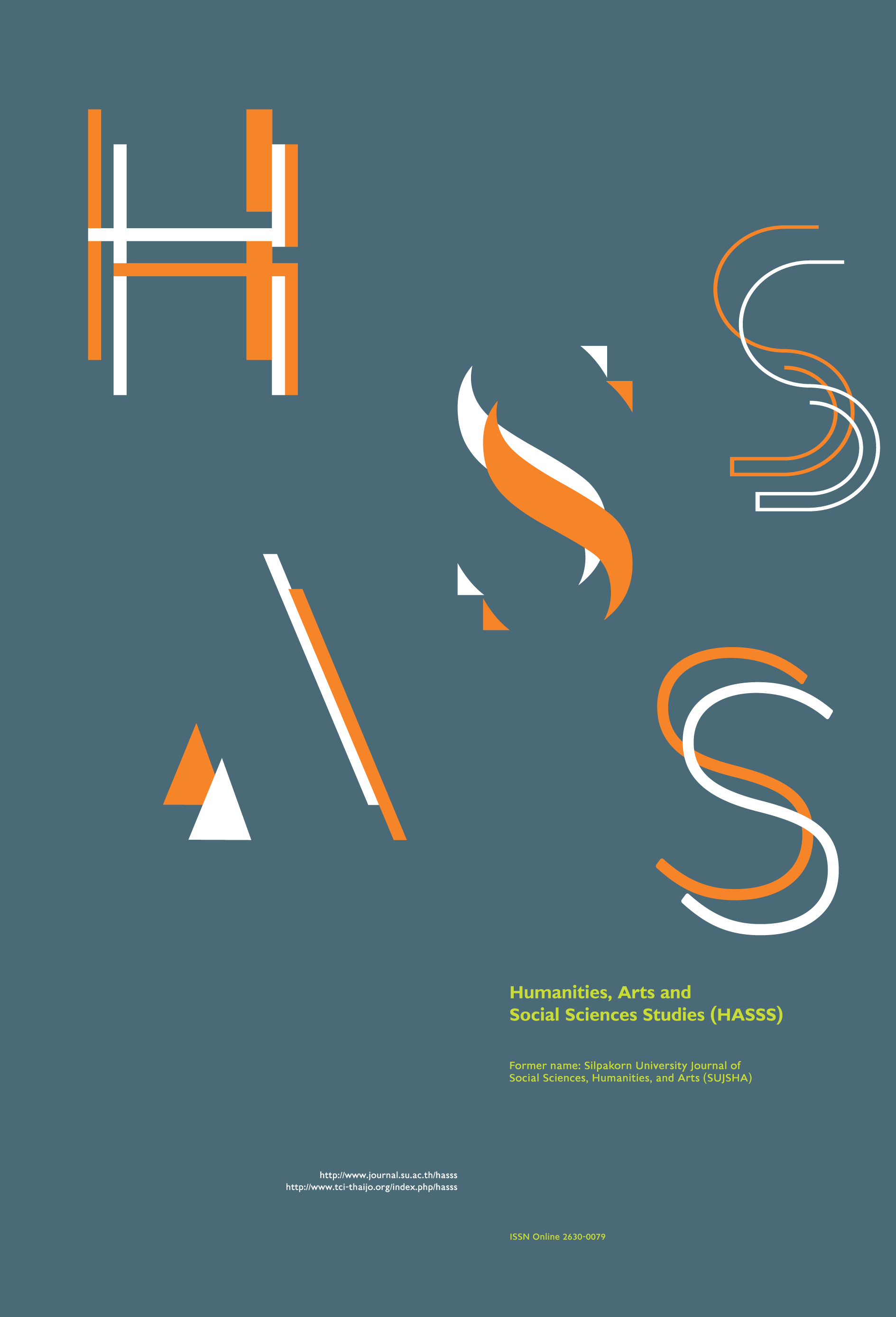Social media as the learning platform of power in Thai university students
Main Article Content
Abstract
This study explored the social phenomena of how Thai students have become accustomed to using and misusing social media (i.e. Instagram, Facebook, and Twitter) in order to learn social thoughts and behaviors. It appears as if this generation of students has become very reliant on these social media platforms as a means of expression and learning, which is resulting in power. The social learning platforms of Facebook, Twitter, and Instagram are becoming platforms of social learning which results in power. This qualitative study was designed to find out how 3 social media platforms are contributing to the social learning power of Thai university students and how these three platforms, media literacy, and social learning are related. The researchers wanted to explore the perceptions of power and social learning amongst Thai university students, and why students are using Twitter, Facebook, and Instagram as modes of communication and learning platforms. This study is important for Thai students to raise awareness of how influential social media has become, and important for instructors to potentially harness social media as a teaching tool. 52 Thai university students were interviewed using FB messenger and cleary that these 3 platforms have become places where students learn social behaviors and where they can express themselves with proper media literacy skills.
Downloads
Article Details
All rights reserved. Apart from citations for the purposes of research, private study, or criticism and review,no part of this publication may be reproduced, stored or transmitted in any other form without prior written permission by the publisher.
References
Bandura, A. (1969). Social-Learning Theory of Identificatory Processes. In Handbook of Socialization Theory and Research, edited by D. A. Goslin, pp. 213-262. Chicago, IL: Rand McNally & Company.
Constine, J. (2017). Facebook now has 2 billion MONTHLY users... and responsibility. TechCrunch. [Online URL: https://techcrunch.com/2017/06/27/facebook-2-billion-users/] accessed on July 15, 2020.
Creswell, J. W. (1999). Mixed-method research: Introduction and application. In Handbook of Educational Policy, edited by G. J. Cizek, pp. 455-472. San Diego, CA: Academic Press.
Gonzales, A. L. and Hancock, J. T. (2011). Mirror, mirror on my Facebook wall: Effects of exposure to Facebook on self-esteem. Cyberpsychology, Behavior, and Social Networking 14(1-2): 79-83.
Guinote, A. (2015). Social cognition of power. In APA Handbook of Personality and Social Psychology, Vol. 1. Attitudes and Social Cognition, edited by M. Mikulincer, P. R. Shaver, E. Borgida and J. A. Bargh, pp. 547-569. Washington, DC: American Psychological Association.
Katz, E., Blumler, J. G. and Gurevitch, M. (1973). Uses and gratifications research. The Public Opinion Quarterly 37(4): 509-523.
Magpanthong, C. and McDaniel, D. (2015). Online expression of emotions and personal viewpoints: A case study of Facebook usage among Thai and US students. BU Academic Review 14(2): 83-99.
Mazman, S. G. and Usluel, Y. K. (2010). Modeling educational usage of Facebook. Computers and Education 55(2): 444-453.
Northouse, P. G. (2016). Leadership: Theory and Practice. 7th ed. Thousand Oaks, CA: Sage.
Pittman, M. and Reich, B. (2016). Social media and loneliness: why an Instagram picture may be worth more than a thousand Twitter words. Computers in Human Behavior 62: 155-167.
Potter, W. J. (2015). Introduction to Media Literacy. California: Sage Publications.
Ryan, T., Chester, A., Reece, J. and Xenos, S. (2014). The uses and abuses of Facebook: a review of Facebook addiction. Journal of behavioral addictions 3(3): 133-148.
Siddiqui, S. and Singh, T. (2016). Social media its impact with positive and negative aspects. International Journal of Computer Applications Technology and Research 5(2): 71-75.


